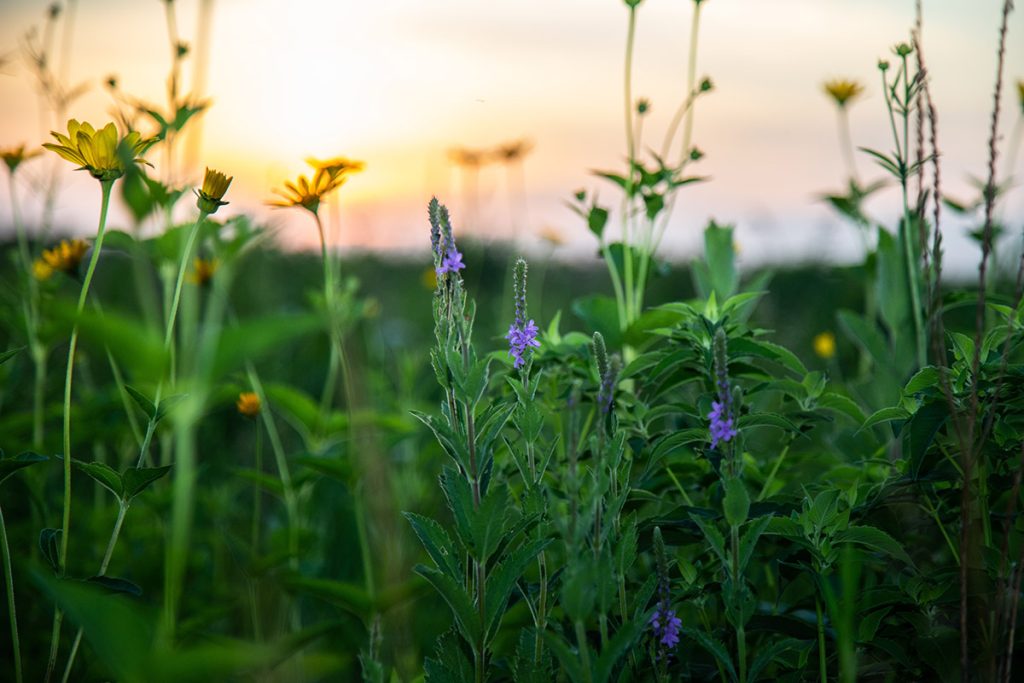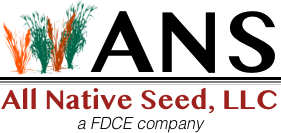
As efforts to combat climate change, deforestation, and wildlife habitat loss continue, many are looking to native plants for help. Native plants provide numerous benefits to local land and wildlife and are easy to grow and maintain.
But what exactly is a native plant? Here, we’ll dive into the definition of a native plant, as well as the benefits of planting native species on your land.
What is a native plant?
The definition of a native plant is fairly straightforward. The USDA defines native plants as “a plant that lives or grows naturally in a particular region without direct or indirect human intervention.”
Essentially, native plants are flowers, trees, shrubs, or forbs that evolved over thousands of years to thrive in a specific area. Other plant species, animals, insects, and humans depend on native plants for resources and survival.
Native plants are important species for local habitats and ecosystems. They maintain symbiotic relationships with local wildlife which are dependent on native plants for food, shelter, cover, and nesting. In turn, wildlife and soil organisms assist native plants with photosynthesis, pollination, and seed dispersal.
Since native plants are naturally grown in the areas where they evolved, they are perfectly adapted to local climate, geology, flora, and fauna. Because of this, they are the most sustainable plants that can be grown in their specific area.
While exotic species can be grown in non-native areas, they do not support the local wildlife and environment as well as native plants. Worse, invasive species can harm or even destroy local habitats. Planting native species ensures mutual benefit between the plant and the local environment.
What are the benefits of growing native plants?
In addition to sustaining the local wildlife, there are many other benefits to growing native plants.
Improves soil health
Because their root systems can penetrate deep into the soil, native plants can better absorb water during periods of heavy rainfall or reach deep underground water during a drought. This allows them to use less water to grow, manage water runoff, and maintain the health of the soil.
Their root systems also add organic matter deep within the soil. This provides numerous benefits for other plant species and organisms growing in the soil and helps improve infiltration and carbon sequestration.
Low maintenance
Compared to other species, native plants are easy to grow and maintain. They typically do not require mowing (past establishment period), which helps to reduce the amount of air pollution caused by mowers.
They also do not need fertilizer and require less pesticide application than other plants, which reduces the amount of harmful phosphorus, nitrogen, and chemical runoff entering water sources.
Supports pollinators
Growing native plants also helps support local pollinators like butterflies, moths, birds, and other insects. As butterflies evolved alongside native plants, they developed a mutualistic relationship, providing nectar and shelter to butterflies and critical pollination to the native plants.
Planting native species is an effective way to draw associated butterflies and other beneficial pollinators to your land. Native plants also boost biodiversity, further ensuring the sustainability of local wildlife and habitats.
How do I know which plants are native to my area?
The National Wildlife Federation (NWF) offers a Native Plant Finder tool to help you determine which plants are native to your region.
Use your zip code to search for flowers, grasses, trees, and shrubs local to your area. The tool can also list local butterfly species and the plants that host them if you’re looking to attract a particular species.
Where can I find native seeds?
At All Native Seed, our seed mixes are specially developed to incorporate native species. With our CRP-ready mixes, you can grow native grasses and forbs that germinate quickly and provide critical benefits to your local wildlife.
Want to learn more about our native seed mixes? Contact us today!
